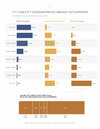From today's news here in California:
California’s clean-air regulators Wednesday unveiled a far-reaching proposal requiring a ramp-up in sales of zero-emission cars, culminating in a ban on new gasoline-powered cars by 2035.
If adopted by the California Air Resources Board this summer, the regulations will be the first of their kind in the world and could pave the way for nationwide standards. At least 15 other states pledged to follow California’s lead on car standards on previous clean-car rules, and the federal government usually follows.

 laist.com
laist.com

("Charging a Tesla car.JPG" by Jeffrey Beall is licensed under CC BY 4.0.)
California’s clean-air regulators Wednesday unveiled a far-reaching proposal requiring a ramp-up in sales of zero-emission cars, culminating in a ban on new gasoline-powered cars by 2035.
If adopted by the California Air Resources Board this summer, the regulations will be the first of their kind in the world and could pave the way for nationwide standards. At least 15 other states pledged to follow California’s lead on car standards on previous clean-car rules, and the federal government usually follows.

California Unveils Proposal To Ban New Gasoline-Fueled Cars
If adopted, the rules would be the first of their kind in the world, prohibiting new gasoline or diesel cars by 2035.
("Charging a Tesla car.JPG" by Jeffrey Beall is licensed under CC BY 4.0.)
Last edited by a moderator:



